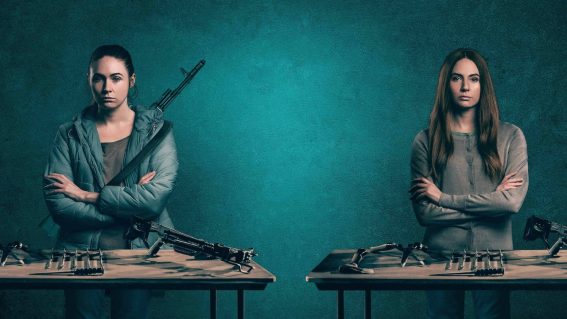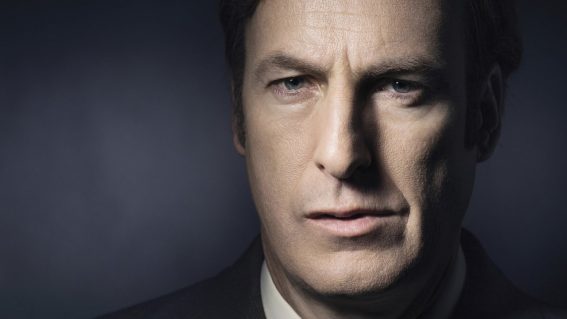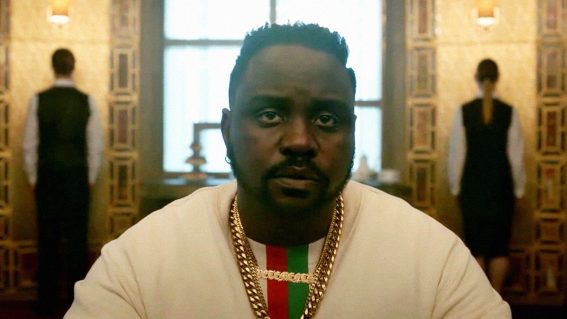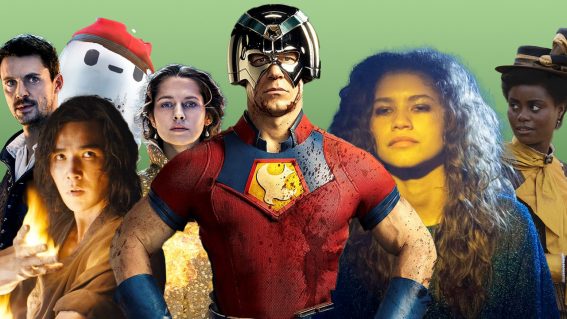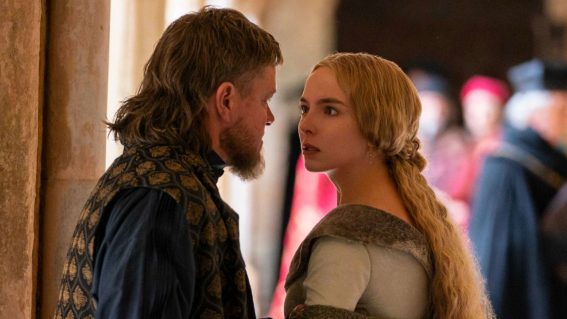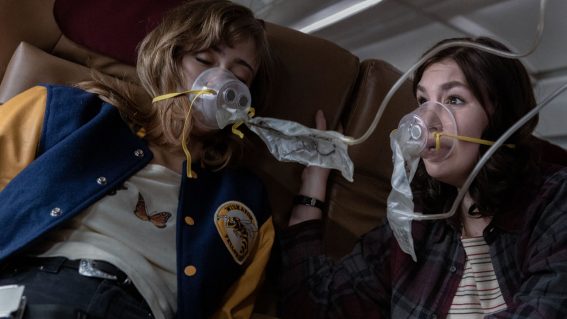Ethan Hawke is in peak form, going up to 11 in The Good Lord Bird
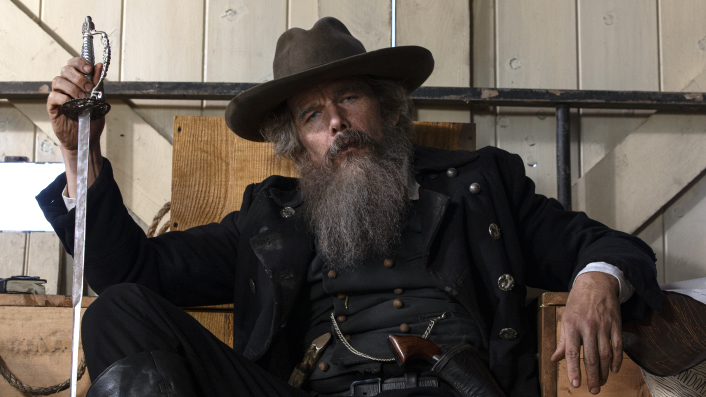
New to Neon, The Good Lord Bird sees an enslaved teenager (Joshua Caleb Johnson-Lionel) become a member of a motley crew led by John Brown (Ethan Hawke) in pre-Civil War America, making an armed effort to free the country of slavery.
A working knowledge of 19th century American history isn’t required to enjoy The Good Lord Bird—as evidenced by the show itself, which opens with the onscreen text “All of this is true” before adding “most of it happened”. Instead, an enthusiasm for drama, comedy and absurdity will see you right, especially paired with an appreciation for strong performances skillfully standing out against the chaotic background of the pre-Civil War South.
The biggest of these comes courtesy of Ethan Hawke as wild-eyed, gun-toting (and possibly quite mad) John Brown, who’s on a mission from God to abolish slavery. Hawke’s given himself an abundance of great material to work with here, as well as license to go frequently over-the-top, adapting James McBride’s award-winning novel of the same name for this mini-series. Loosely chronicling Brown’s time leading up to an 1859 attempt to initiate a slave revolt in the US (considered a prelude to the Civil War proper), The Good Lord Bird sees Hawke in peak form, and wastes little time in dialling him up to 11.
See also:
* Films and shows now streaming on Neon
* Everything new to coming to Neon
Opening on Brown as he solemnly prepares for execution with the words “What a beautiful country”, the show quickly jumps back to the first meeting of Brown and young slave Henry (Joshua Caleb Johnson). Henry’s father is administering a shave to Brown, the reclining customer as yet unrecognised by a gun-toting group including Henry’s master. The slave-owner soon takes a keener interest in the conversation between this stranger and the man he’s paying to wield a razor, as talk of the Bible turns to the holy gospel of abolition—not the sort of sermon appreciated at the time in Kansas.
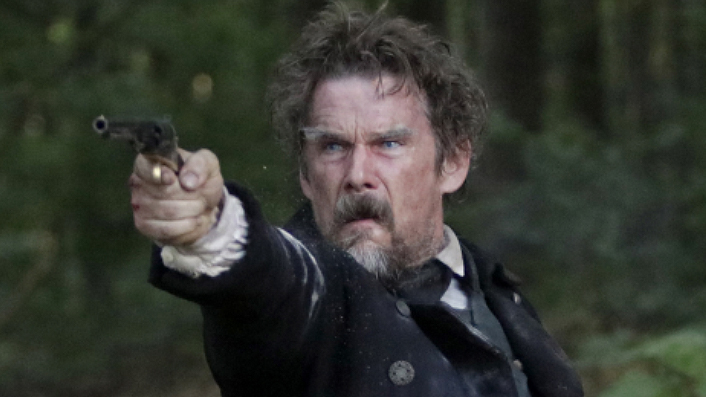
Within moments, theological discussion becomes an armed standoff, Brown’s identity is disclosed, and (hardly for the last time in The Good Lord Bird) the handsomely bearded Hawke is in crazy-eyed, spittle-flecked preacher mode (a million miles from his superb First Reformed priest, but impressive for wildly different reasons). Soon the inevitable occurs—gunfire is exchanged, and in the commotion, Henry’s father is killed.
Such is the chaos that, as Brown flees and takes Henry with him, he mistakes the young man for a young woman, mishearing him as being called Henrietta. Saved from certain death, and reeling from watching his father’s murder, Henry has no interest in disabusing Brown of this notion. “I near choked calling myself a member of the opposite nature, but lying came naturally to all Negroes during slave time,” Henry’s narration will tell us soon after, with the added observation “No man or woman in bondage ever prospered stating their true thoughts to the boss”.
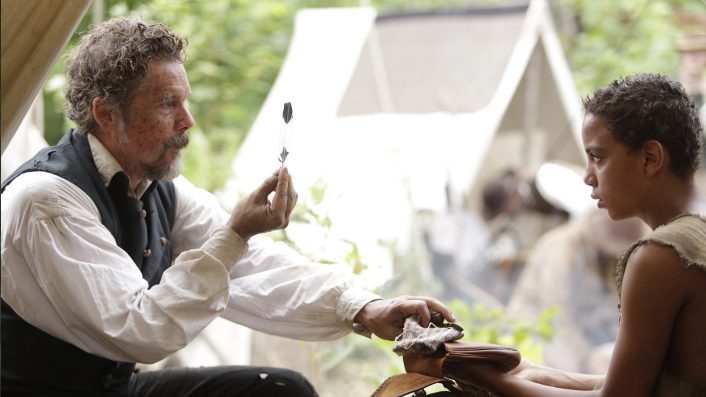
It’s this fictitious character of Henry whose eyes this sorta-perhaps-true tale is told, as he heads off with Brown’s ragtag gang (“Gunfighters of the gospel,” as Brown calls ’em). They’re far from a disciplined fighting force—later we’ll learn members can come and go as they please, with the party thinning out comically ahead of battle—but have rallied together around the talismanic presence of Brown. Some of his sons may roll their eyes at his ways, but the preacher in him is a compelling source of charisma (as is his bravery/blatant disregard for his own safety) and Brown has rallied a small group of fairly faithful fighters.
“I reckon you’re not feeling very righteous about what just transpired, seeing you lost all the family you had, and whatever family you may have left you’re probably never going to see again,” Brown says to ‘Henrietta’ in a sign of rambles to come. “But I know that feeling well, I know that feeling well. I’ve lost many family—I’ve lost my first wife, I lost my mother when I was younger than you, I lost my father, I lost Jesus of course, I had a pet squirrel for seventeen years, she died…”
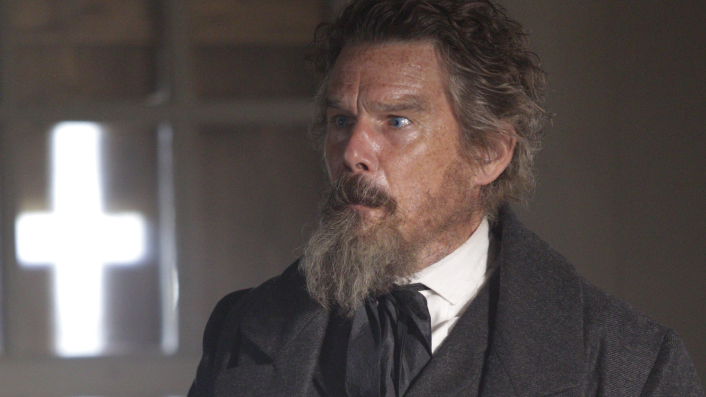
Brown’s rambling nature is comically evident in his attitude to prayer, which is when his sons can be found at some of their most eye-rollingest. That’s in part due to their extreme length, with Henry at one point describing him as “a plain terror in the praying department” with prayers that were always long and could easily last an hour. Brown’s also of a mind to include all manner of subjects as he leads his followers in prayer—one can safely speculate his sons are as unhappy having their “nocturnal struggles” spoken of (as they are when we first see Brown in prayer mode) as they are about the tedium.
Stylistically, The Good Lord Bird plays things pretty straight. The South depicted on screen is one we’ve seen plenty of times before, with the costuming and sets you’d expect from a prestige drama. It’s a backdrop that allows grounding of the show’s more comical and over-the-top elements, particularly in believably housing a broad spectrum of performances that’s not just exemplified by Hawke’s OTT magnificence or a more traditional dramatic naivety from newcomer Johnson as Henry. Elsewhere, Wyatt Russell (son of Kurt) charms on horseback as a man of honour (and future Confederate general) Jeb Stuart, while Steve Zahn turns in a laughably loopy performance as a boasting, drunken dimwit.
Another standout performance arrives in episode three, courtesy of Daveed Diggs. Clearly not content with portraying historical figures after his best-known turn, the dual roles of Marquis de Lafayette and Thomas Jefferson in Hamilton, Diggs brings renowned orator, abolitionist (and former slave) Frederick Douglass to life in a biiiig performance that’s equal parts eloquence, self-importance… and horniness. That Diggs can lean into the role with such gusto, whether it’s making a speech, a tense conversation at dinner, or the farce that The Good Lord Bird finds in his romantic life (living as a throuple with his wife and mistress), is a testament to the strong foundation the show lays to permit its broad tone, including humour that’s a mix of slapstick, Twain and satire.
Don’t think this is all laughs, though. The grim reality of slavery is never far from view, and every time things are feeling like a bit of a Huck Finn adventure, The Good Lord Bird serves up another reminder of how dehumanising the era was. Then there’s the gore, presented in a way that’s hard to tell whether it’s meant to be realistic or relished in over-the-top fashion. One scene sees a man gruesomely blown in half by a cannon (“In that moment, like the rest of the country, Chase was divided in half” the show observes), in another, a doomed military charge is cut down by rifle fire in slo-mo.
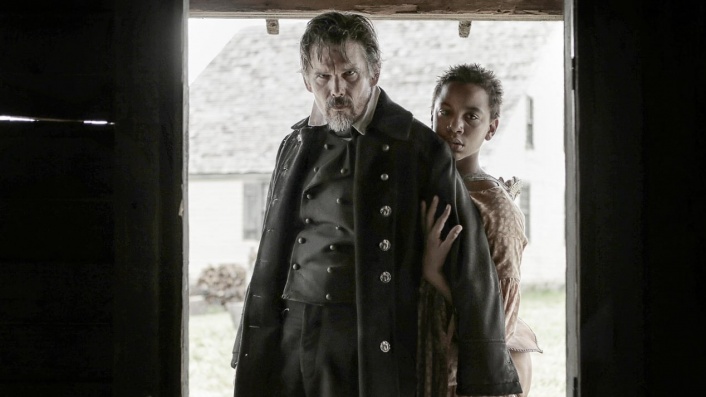
As well as being entertained on multiple levels, there’s plenty to ponder as The Good Lord Bird charts one man’s efforts to free America of an evil, the legacy of which it still struggles with today. That we know about the horrors of the Civil War to come soon after the events shown here lends the show a tragic air—as do the century-plus of vile racism and civil rights struggles that will follow.
It’s an interesting experiment to try and set aside this awareness of history and look at Brown in objective fashion—he’s an old loon, not drawn to violence but OK with it as a means to his end, who takes his marching orders from God, and is waging war on a nation. As we reel from seeing an insurrection in the United States in past weeks, it’s perhaps worth sparing a thought that those unhinged individuals thought they were doing the right thing, too—even as some of them exemplify the worst modern remnants of the racial hate seen in The Good Lord Bird.
The enormous crucial difference is, of course, that in Brown’s case, he was right—lending a moral weight to the entertainment on display across these seven episodes. “We’re not talking about right and wrong, this country’s been wrong since the beginning, since the first Thanksgiving—ask the Indians” says Brown. “That’s not what we’re talking about, we’re talking about breathing life back into her soul.”



